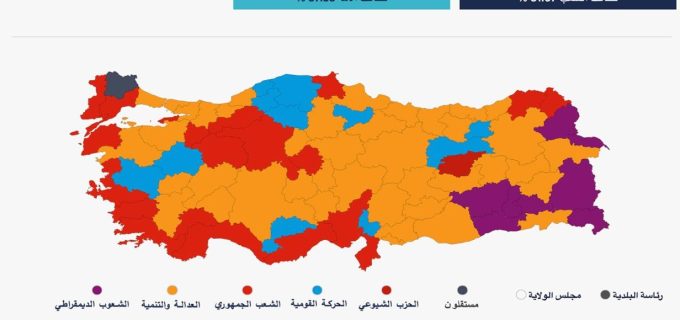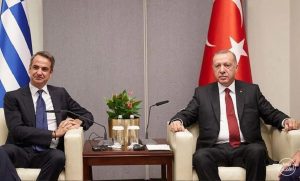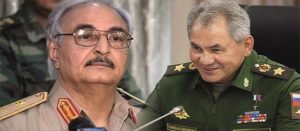Turkey has been witnessing successive rounds of presidential and parliamentary elections as well as popular referenda. The most recent of which were the municipal elections held on March 31, 2018. The People’s Alliance, which includes the ruling Justice and Development Party (AKP) and its ally the Nationalist Movement Party (MHP), won these elections by 51.64%. On the other side, the Nation Alliance, which brought together the Republican People’s Party (CHP) and the Good (Iyi) Party, got 37.57% of the votes. The rest of the votes were distributed among other small parties. These elections are very important, for they are the last to be held until 2023.
The AK Party and its ally lost mayorship of Ankara and Istanbul too (which had not yet been confirmed until April 15, 2019). However, the party managed to guarantee a comfortable majority of the members of the municipal councils both in Ankara and Istanbul. The opposition’s tactics and coordination between the Republican People’s Party (CHP), the Good (Iyi) Party and the People’s Democratic Party (HDP), is the factor that caused The AK Party to lose mayorship of these two major municipalities. Thus, the following question shall be raised: Can these results mark the opposition’s rising star and the decline of the AK Party? Or, are they just mere factors the ruling party will be able to deal with in the next stage?
Elections: Contexts and Results
The local elections took place in a highly competitive local atmosphere and caught unprecedented international attention, despite being only local requiring co-governance of municipalities. The fierceness of the competition has affected the quality of the political discourse and the parties’ stakes. The ruling AK Party considered these elections to be very important to Turkish progress. Thereby, it has introduced some leading figures as participants in order to win what could enable it to pursue its 2023 strategy through ensuring coherence between the central government and the municipalities, especially Ankara and Istanbul, where some of the major projects are being implemented.
On the other hand, these elections were quite a good catch for the opposition which tries to weaken the ruling party through putting forward the rising prices. It has worked to win mayorship of the major municipalities, and believed these results to be the beginning of power sharing with the AK Party.
The importance of the municipal elections lies in the opportunity it is offering to the Turkish parties to further discover the citizens’ needs and get themselves ready for the upcoming presidential and parliamentary elections. While the AKP seems to have lost Ankara and perhaps Istanbul mayorship, the election results have restored the confidence of opposition parties, and further fostered Turkish democracy and the role of voters.
The results revealed a disparity among the attitudes of the voters, who voted for the AKP at the sub-municipalities and abstained from voting for the party’s candidates at the level of mayorship elections, especially in Ankara and Istanbul. Therefore, the candidates themselves are likely to be the reason behind this decline regarding mayorship elections.
Table 1: The names of the parties participating in the elections and the results
| Party | Senior Municipality | Province | City | Town | Total |
| Justice and Development Party (AKP) | 15 | 24 | 535 | 202 | 776 |
| Republican People’s Party (CHP) | 11 | 10 | 191 | 51 | 263 |
| Nationalist Movement Party (MHP) | 1 | 10 | 145 | 89 | 245 |
| The People’s Democratic Party (HDP) | 3 | 5 | 50 | 12 | 70 |
| Other Parties | 0 | 2 | 33 | 26 | 61 |
| The Good (Iyi) Party | 0 | 0 | 19 | 6 | 25 |
| Total | 30 | 51 | 973 | 386 |
The AK Party lost eight municipalities at province-level, including the capital Ankara and Istanbul Metropolitan Municipality, to its main rival, the Republican People’s Party (CHP), as well as seven other municipalities to its ally the Nationalist Movement Party (MHP).
The AK Party won six new municipalities that it has lost previously to other parties, mainly two from the Republican People’s Party (CHP), three from the Kurdish-dominated People’s Democratic Party (HDP), and one from the Nationalist Movement Party (MHP). The party’s victory in Kurdish areas is due to two factors: Protecting them against the retaliation of the Kurdish rebels after the state has extended its influence and relying tribal leaderships to address community approaches.
the Republican People’s Party (CHP) won eight major municipalities, which it has lost before, thus, increasing its share to 21 out of the total of 81 major and minor municipalities. The contribution of the municipalities the CHP managed to win in Turkish economy is about 62%.
The AK Party shall be credited for winning three Kurdish-majority municipalities, for this reveals the extent to which its policies and administrations in the south-eastern regions of Turkey were successful and beneficial to the state.
According to the above-mentioned results, it is clear that in spite of the convergence of the results both obtained by the Nationalist Movement Party (MHP) (7.31%) and the Good ( Iyi) Party (7.45%), Iyi did not win in any municipality, while the MHP won 11.
Table 2: Municipalities the AK Party has lost during these elections
| Municipalities AK Party lost to its rival
the CHP |
Municipalities AK Party lost to its ally the MHP | ||
| 1 | Ankara | 1 | Kerman |
| 2 | Istanbul (unresolved yet) | 2 |
Çankiri |
| 3 | Antalya | 3 | Amasya |
| 4 | Ardahan | 4 | Zanjan |
| 5 | Bolu | 5 | Bayburt |
| 6 | Artvin | 6 | Kastamonu |
| 7 | Bilecik | 7 |
Kütahya |
| 8 |
Kırşehir |
8 |
Table 3: The municipalities the AK Party has won this time and taken from its rivals
| Taken from the CHP | Taken from the HDP | Taken from the MHP | |
| 1 | Zonguldak | Shernakh | Isparta |
| 2 | Giresun | Bidlîsê | |
| 3 | Ağrı |
The two Capitals (Ankara and Istanbul)
The loss of Ankara, the political capital, was a painful blow to the AK Party. The loss of Istanbul, the economic capital, was not less painful too, because it has been the bridge thanks to which the AK Party rose to power under Prime Minister Recep Tayyip Erdoğan, who managed to win the support of Turkish people during his presidency of Istanbul Metropolitan Municipality. This is the first time the AK Party has ever lost Ankara and Istanbul since it came to power in 2002.
In spite of the loss of mayorship of Ankara and Istanbul Metropolitan Municipality, the People’s Alliance, consisting of the AK Party and the Nationalist Movement Party (MHP), has won the majority in the two municipalities. In Ankara, 105 members of the People’s Alliance won, while only 42 members of Nation Alliance won. In Istanbul, the People’s Alliance won 180 while the Nation’s Alliance won only 135.
The AK Party still hopes to win the Istanbul Metropolitan Municipality, after it submitted a request to re-run the elections to the Supreme Elections Commission that has rejected its previous request to recount all the votes. The party claimed that the results were forged, and that its candidate won 14,000 votes counting only 5% of the total votes; thus, reduced the difference between him and the CHP candidate to about 14,000 votes.
It is noteworthy that the AK Party results have increased by 1% since the last election. However, the CHP candidate managed to win by 48.80%, marking a 18.68% increase more than the overall percentage his party won all over Turkey, which is equal to 30.12%. Thereby, he was able to get many votes from outside his party, as well as his ally, the Good (Iyi) Party, winning only 7.45%. This result is close to the one the party’s candidate for the last presidential elections, Muharram Engha, has obtained.
Factors Affecting the Results
There are many factors affecting the results of the elections. Voters’ drives cannot be grouped together under a sole classification due to various and different political and ideological backgrounds, priorities and interests inside a society characterized by highly political framing, for each party has it own quasi-fixed base. This is in addition to the limited number of voters who are neither framed nor affected by the economic factor and the quality of candidates.
In major cities, the economic factor increasingly affects political polarization, for it is strongly related to the cost-of-living benefits, while citizens in other cities and rural areas can understand the ruling party’s rhetoric and rationale.
The candidates of the ruling party and the reintroduction of some old ones have affected the voters’ tendencies and the motivation of the figures and members of the party itself. It is believed that choosing a Kayseri citizen to be the party’s candidate for Ankara mayorship was the reason behind the residents’ reluctance to vote for him. Many of the AK Party members did not appreciate the campaign’s rhetoric, describing elections as an existential issue and competitors as enemies and putting forward security concerns as the party’s main drive for economic performance. This is in addition to increased activity of the president, both at the official and party levels, after his re-election. His personality and actions have overshadowed other figures that occupy positions at the level of ministries, municipalities and the party and dominated their roles, besides weakening or excluding some of the founders of the party.
Despite its various orientations and intersecting interests, the opposition managed to run its campaign with the aim of cooperating to curb the powers of President Recep Tayyip Erdogan, and call voters to vote against AK Party. Economy is the most important factor affecting the needs of the Turkish population, especially the group of voters who are not governed by a set of ideologies and are usually decisive for the competing parties. The Turkish market has witnessed a slight rise in the prices of some commodities, as well as the decline of the Turkish lira compared to the dollar, as the Turkish Lira has lost 40% of its value last year.
Scenarios
The political dimensions of the municipal elections took this race out of its local level and limits to tackle the future of President Recep Tayyip Erdoğan and his AK Party. Maybe, this is due to something similar to the Turkish principle providing that those to win the Istanbul mayorship shall rule Turkey, not to mention the stakes of other countries concerned with Turkey’s ongoing progress under the leadership of the ruling party.
The scenarios of the election results’ effects on the AK Party are summarized in these two scenarios:
Scenario 1: Limited Implications
This scenario depends on the hypothesis which suggests the results of the elections to be normal, for the party has gone through such a situation, but it was able to regain its strength in the subsequent elections, as happened in the 2015 parliamentary elections. In addition, the loss of AK Party is already questionable. According to President Recep Tayyip Erdoğan’s speech, this deficiency lies in the lack of a sufficient introduction of the candidates and the thorough explanation of the party’s program. Besides, the party is capable of reviewing, evaluating and redeeming oneself, for it is far more flexible that its rivals.
The opposition is only united thanks to its position toward President Erdogan; and therefore, it does not represent a strategic alliance, for the secular Republican People’s Party (CHP) stands between two allies, namely the Turkish nationalist Good (Iyi) Party and the Peoples’ Democratic Party, a Kurdish nationalist, and both are enemies.
Scenario 2: End of Power Monopolization Stage
This scenario assumes that the results of the elections converge with the previous results of the party, and that the coordination between the opposition has grown stronger and deeper. Therefore, the results may be a great indication that the rise of the AK Party to power has reached its limits to mark the stage of gradual weakness and the end of power monopolization. This is made evident through the party’s inability to compensate for losses and win the way it used to and the internal problems coinciding with external challenges, in addition to the opposition members’ ability to vote for one candidate against the ruling party’s candidate.







